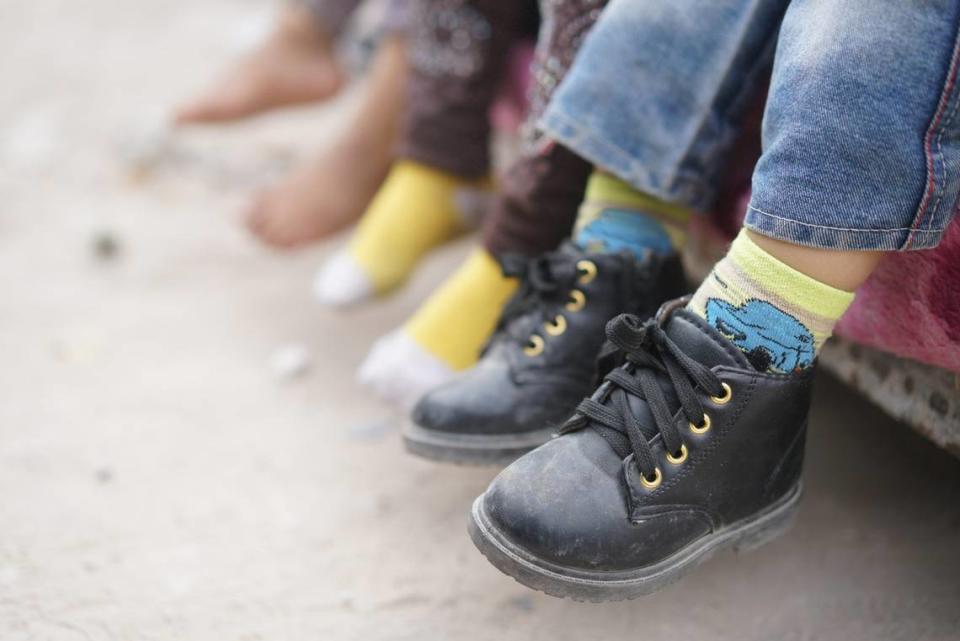The United States is cutting poverty in half. Shame on us for not doing this sooner | Opinion
A surge in COVID-19-inspired initiatives will reduce Americans in poverty by a whopping 20 million people. Why didn’t this happen sooner?
The myth of “the welfare queen” that flourished under Ronald Reagan, powered 40 years of Republican election victories and guided government policy as America largely dismantled its social safety net, is finally dead. Or at least on life support.
Instead, the nation is finally learning that the real beneficiaries of government aid are women like New Hampshire’s Christina Darling, who is spending her monthly checks for $550 a month from the new expanded Child Tax Credit program on things like buying more fresh produce for her two kids. Her new monetary lifeline isn’t leading to fur coats or a Cadillac — the stuff of GOP campaign-trail fantasy for decades — but it is helping make payments on the modest car that the 31-year-old bought to take the children safely to day care. Darling told the Associated Press she might even occasionally hire a babysitter — to get more involved in civic life and run for her city’s council.
“The additional money does help alleviate the pressure,” another New Hampshire beneficiary of the program — 29-year-old Brianne Walker, a mother of three who quit a job to raise her two siblings after her mom died from a drug overdose and began receiving $800 a month this summer — told the AP. The news service talked to parents across the nation about the new tax credit program — part of the $1.9 trillion COVID-19 relief bill signed by President Biden, which expanded the benefits and turned it from a more-complicated year-end tax filing to the monthly checks — and found the payments were going to rent, paying off debt, putting more food on the table and giving beleaguered working-class Americans a chance to breathe.
One study suggested that the new, expanded tax credits — going out to more than 35 million households with children — could reduce child poverty in America by 45%. That’s remarkable, and it’s just part of a broader trend as the shock of the global pandemic forced the government to take the economic struggles of the poor and the lower middle class more seriously than any time since Lyndon Johnson’s war on poverty in the mid-1960s.
A New York Times report last week looked at the wider array of expanded programs that were enacted since early 2020 to respond to the economic shocks of the coronavirus outbreak — one-time government stimulus checks, expanded unemployment benefits and increased food stamps — and the impact was staggering. Experts cited by The Times found that some 20 million Americans rose out of poverty since 2018, which would essentially cut the rate of those the government classifies as poor in half, now at the lowest level since Washington began keeping track.
For a brief, shining moment in the 1960s, defeating poverty had seemed like the final frontier for a nation that had helped win World War II and was sending astronauts to the moon — and LBJ’s Great Society did make a significant dent for a few years before the backlash. White-resentment politics that played up any reports of abuse and ignored the public good had won the day by the 1980s.
Those same forces of reaction are still out there, still lurking. The Heritage Foundation’s Robert Rector told the Times “[y]ou want policies that encourage work and marriage, not undermine it” — but that just seems totally bass-ackward. Affording childcare or a working automobile actually helps people find jobs, and what historically has been more destructive to marriage than poverty?
Several key decisions loom, including whether to make the expanded Child Tax Credit permanent, but also an array of pro-family programs proposed by the Biden administration that would greatly expand childcare — probably the most pro-job, anti-poverty measure in the tool box — and make community college tuition-free, and much more. Conservatives will argue that America can’t afford this, and to be sure it wasn’t cheap to so sharply reduce the poverty rate. It’s estimated that — largely because of the one-off payments made necessary by the pandemic — spending on the basic social safety net quadrupled to $1 trillion.
The costs of the proposals are not as great. Remember, we’re talking about the United States of America, the nation that just spent $2.26 trillion on an almost “forever war” in Afghanistan that after its first year or two seemed to accomplish little or nothing.
Just a modest rightsizing of what still would be the world’s most powerful military would free up hundreds of billions of dollars to rebuild America’s middle class. So would simply restoring tax rates on our uber-profitable corporations and the billionaires who run them back to the historically low level those rates were at in 2017. Even a wealth tax such as the one proposed by Sen. Elizabeth Warren deserves a debate, in the name of restoring balance to a U.S. society that’s spent 40 years careening off the rails.
It’s impossible not to look at America’s struggling working-class moms finally putting some greens on the dinner table or driving off to community college and wonder why this hasn’t been a top priority — as opposed to new fighter jets and propping up the U.S. yacht industry.
Will Bunch is national columnist for the Philadelphia Inquirer.
©2021 Philadelphia Inquirer

 Yahoo Movies
Yahoo Movies 

